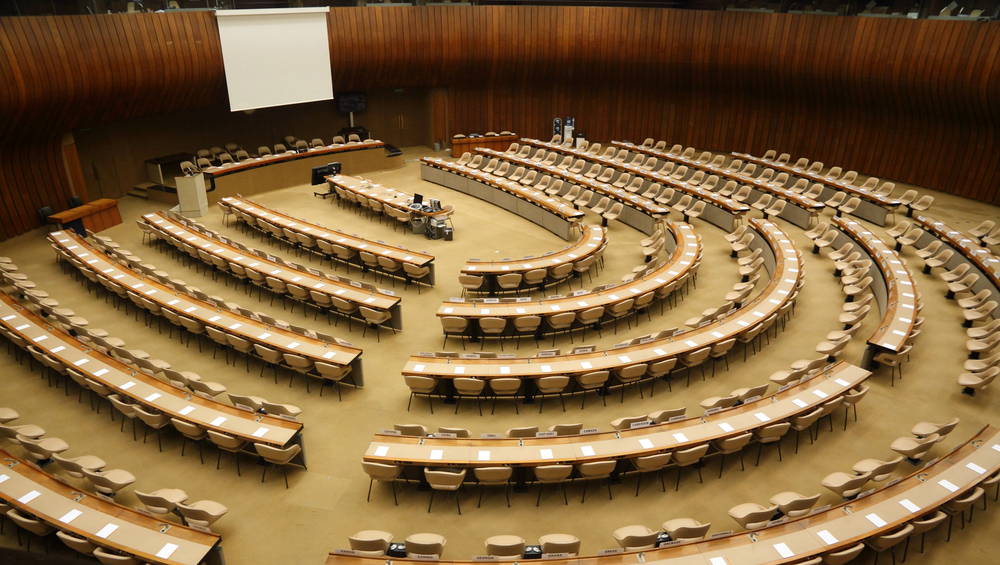Donors, international organizations, and other external actors have significantly influenced the public health landscape in African nations. Partnerships between African countries and external entities are critical to addressing the region’s health challenges, but donor-driven agendas persistently overshadow local priorities and do not always contribute to long-term development.
The New Public Health Order (NPHO) advanced by the Africa Centres for Disease Control and Prevention (Africa CDC) underscores the urgency of reassessing and reformulating the historically imbalanced global health partnerships in Africa. Transforming such partnerships requires understanding the dynamics of existing global health initiatives, analyzing the implications of imbalanced cooperation, and identifying strategies to achieve more effective and equitable collaborations among donors, national institutions, and the Africa CDC that align with the NPHO.
The Impact of Donor-Driven Agendas
Donor-driven partnerships in African countries have yielded mixed results. The Global Fund to Fight AIDS, Tuberculosis, and Malaria, the U.S. President’s Emergency Plan for AIDS Relief, and the Global Polio Eradication Initiative have contributed to significantly reduced mortality rates in Africa from HIV, malaria, tuberculosis, and polio.
Those initiatives have, however, led to a proliferation of vertical health programs that prioritize specific diseases or interventions without adequately considering the needs of the broader health system.
African governments accustomed to donor health aid have often deprioritized allocating national resources to strengthen domestic health security
In Nigeria and other African countries, donor-driven vertical programs have emphasized establishing laboratories geared toward HIV/AIDS, polio, and tuberculosis. Those laboratories have contributed to controlling those diseases, but that allocation of resources has often resulted in the neglect of other critical public health issues.
For example, Nigeria lacked adequate testing capacity for pathogens causing endemic diseases, such as meningitis, until as late as 2017, underscoring the unintended consequences of donor-driven agendas that fail to address comprehensive health system needs.
“He who pays the piper dictates the tune,” the adage goes. But imposing external priorities undermines local agency and ownership, perpetuating dependency rather than sustainable solutions. African governments accustomed to donor health aid have often deprioritized allocating national resources to strengthen domestic health security. The reliance on external funding has left many projects vulnerable when such funding ebbs or ceases, posing significant challenges to the sustainability and long-term impact of health interventions.
Other impacts of donor-driven agendas are the fragmentation and duplication of efforts. When donors independently fund and implement projects without enough coordination or alignment with national health strategies, overlapping initiatives, inefficient resource use, and confusion among local stakeholders often arise. To illustrate, multiple donors have supported parallel sample transportation and supply chain services in the same country without appropriate coordination. The resulting fragmentation has created gaps in coverage and service delivery, particularly in countries where resources are already limited.
The establishment and expansion of donor-driven projects can also overwhelm local health systems, stretching their capacities to effectively manage and coordinate multiple initiatives simultaneously. That overload can lead to burnout among health workers, increased administrative burdens, and challenges in maintaining quality standards across programs. It is not unusual to visit hospitals where donor-supported projects have higher standards and capabilities, such as sustained power supplies, that government-funded facilities and programs lack.
Clinical trials in specific locations supported by multiple donors can also overwhelm local health workforces. Donor-funded programs frequently hire staff to work outside government-funded facilities, offering higher salaries for short-term positions. That practice can exacerbate the shortage of health-care personnel by diverting valuable human resources from essential health services, especially in rural areas.
Patients and relatives wait inside the Kenyatta National Hospital, as public hospital doctors continue their strike, in the Mathare settlement of Nairobi, Kenya, on April 2, 2024.
REUTERS/Thomas Mukoya
Strengthening Partnerships Under the New Public Health Order
The NPHO’s call for respectful and actionable partnerships provides an opportunity for the Africa CDC, donors, regional stakeholders, and national public health agencies to rethink the dynamics of global health cooperation.
Foremost, the priorities and needs identified by African countries should drive donor projects. The Africa CDC could play a leading role in coordinating such projects. Donor investments in local vaccine manufacturing made through, for example, the Partnerships for Africa Vaccine Manufacturing initiative require the donors and the Africa CDC to actively engage with local stakeholders to understand their contexts, challenges, and aspirations.
In certain instances, donors express concerns about coordination structures, especially regarding the governance of efficiently managing donor funds. The solution, however, should not be to establish parallel structures. Instead, donors should help strengthen the fiduciary capacity of national and regional institutions—an often-overlooked aspect of global health. By respecting local ownership and leadership, donors can ensure that their contributions address the most pressing public health issues in a manner that reflects local realities.
Donors should collaborate closely with the Africa CDC and other regional partners to avoid duplication of efforts and maximize the impact of aid funds. That approach should include participating in coordination mechanisms, such as joint-planning meetings, information-sharing platforms, and collaborative projects. By working together in a coordinated manner, donors can leverage each other’s strengths and resources to achieve common goals more effectively.
Donors should also prioritize investments in capacity-building initiatives that strengthen the technical expertise and institutional capacities of the Africa CDC and member states of the African Union. That strategy should include funding for training programs, mentorship opportunities, and infrastructure-development projects. By investing in capacity-building, donors can empower African countries to take ownership of their public health agendas and respond more effectively to emerging health threats.
Transparency and accountability are critical for respectful partnerships
Transparency and accountability are critical for respectful partnerships. Donors should uphold principles of transparency and accountability in partnerships with the Africa CDC and African Union member states. Donors need to clearly communicate their funding priorities, objectives, and expectations to all stakeholders as well as provide regular updates on project progress and outcomes. Such updates require that donors establish monitoring and evaluation mechanisms that assess the impact of their investments and identify areas for improvement. Those mechanisms, however, should not unduly increase administrative burdens on the Africa CDC or national public health agencies.
Creating more effective and respectful partnerships also requires African governments to improve their performance on public health while being transparent and accountable to the people. African Union member states, for example, should explore innovative financing mechanisms and collaborations to supplement traditional funding streams and ensure support for public health initiatives beyond the lifespan of donor-funded projects. The Africa CDC should work with African Union member states to mobilize more domestic and regional resources to reduce dependency on donors. Putting more skin in the game will strengthen African countries’ demand for more effective and respectful partnerships with other stakeholders.
Seize the Moment
Making global health partnerships in Africa more actionable and respectful is crucial for addressing the region’s public health challenges. Donor-driven initiatives have contributed to significant progress, but they have created dependency on aid, fragmentation of efforts, and marginalization of broader health system needs.
The NPHO emphasizes the imperative for partnerships that are aligned with African priorities and that can enable sustainable solutions. That transformative vision creates a historic opportunity for African governments and donors to rethink the meaning of partnerships, align investments with African needs, empower the Africa CDC, prioritize capacity-building, improve transparency and accountability, and create innovative financing mechanisms.
Health worker James Chinomba writes in details of a child after testing for malaria, at the Chipili Community Center, in Lilongwe, Malawi.
Benny Khanyizira/UNICEF/Handout via REUTERS
EDITOR’S NOTE: This article is part of a series exploring a new public health order for Africa, guest-edited by Ebere Okereke. The other articles in the series can be found here.
The views expressed in this article are solely those of the author.
link






